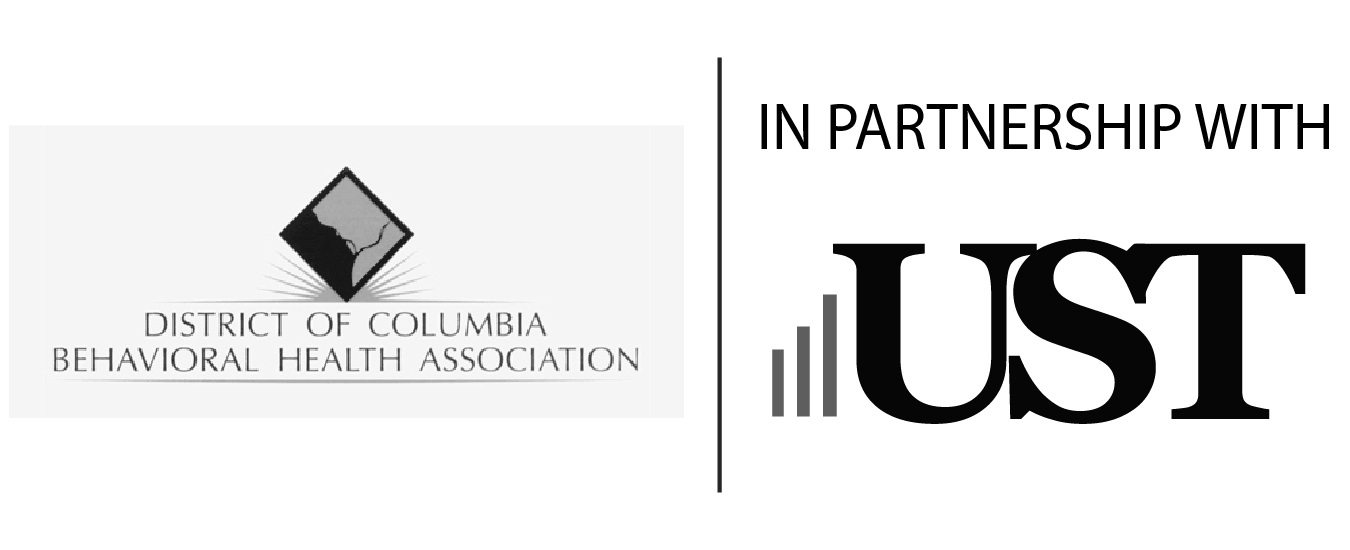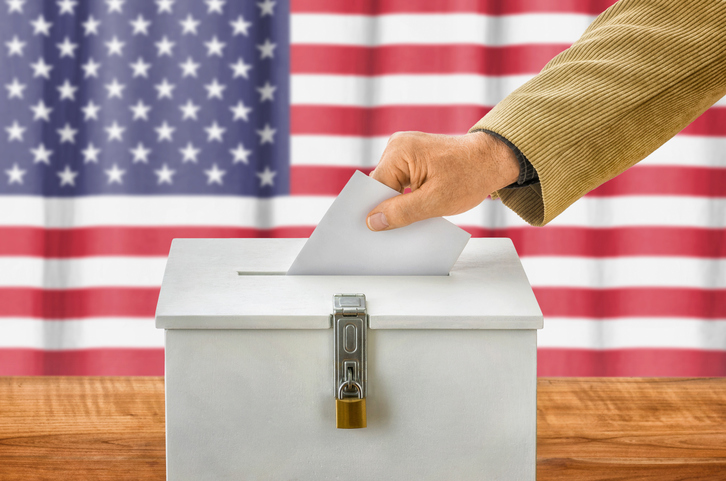Total nonfarm payrolls rose by 161,000 in October while the unemployment rate dipped slightly from 5 percent in September to 4.9 percent. The number of unemployed also dipped in October to 7.8 million. The revision in numbers for both August and September, reflect an additional 44,000 employment gains, bringing the monthly average over the last three months to 176,000.
Employment continued to trend up in health care (+31,000), professional and business services (+43,000), and financial activities (+14,000). Combined, these three industries have filled over 100 thousand positions this year. Employment in other major industries, including mining, construction, manufacturing, wholesale trade, retail trade, transportation and warehousing, information, leisure and hospitality, and government, changed little over the month.
The number of long-term unemployed (those jobless for 27 weeks or more) was unchanged at 2.0 million in October and accounted for 25.2 percent of the unemployed.
Average hourly earnings climbed an additional 10 cents to $25.92 with an annualized increase of 2.8 percent. Wage growth is at its strongest point right now with the employment-to-population ratio reaching 78.2 percent, a level it hasn’t reached since 2008.
Employment gains have remained steady since the recession ended providing a rise in earnings in recent years which solidifies a rate increase before the end of the year. Some, however, are suspecting that the outcome of Tuesday’s election may ultimately affect that action even further.
December 1. This is the date that employers must be in compliance with the higher Department of Labor salary threshold standard for overtime exemption. Are you ready?
Presented by ThinkHR, this 60-minute webinar recording provides additional insights into employer compliance with this rule as a follow-up to the webinar conducted back in May. Learn about the common concerns employers face as well as other employment issues that this rule may cause.
By watching this webinar recording, you will learn:
Throughout the presentation, ThinkHR’s compensation expert, Renee Farrell, will share examples of calculating the costs involved with the final rule, including cost of overtime versus increasing salaries, and share ideas for controlling overtime costs.
Watch the on-demand presentation here: http://bit.ly/overtime-rule-2016
Want access to a live HR hotline and additional webinar opportunities? Visit www.chooseust.org/thinkhr/ and sign up for a FREE 30-day trial of the UST HR Workplace, powered by ThinkHR.


Utilize these 4 methods to create a more balanced and productive workplace:
As a nonprofit leader, you have the power to portray change as a necessary evil or an ongoing opportunity. By setting a positive example and carefully managing both your nonprofit’s goals and employees, you can encourage your staff to constantly challenge themselves and broaden their skill sets—increasing overall organizational effectiveness.
Learn more about how to improve leadership and management practices here.

On the other hand, the FMLA does not require that employees on FMLA leave be allowed to accrue benefits or seniority. For example, an employee on FMLA leave might not have sufficient sales to qualify for a bonus. The employer is not required to make any special accommodation for this employee because of the FMLA. The employer must, of course, treat an employee who has used FMLA leave at least as well as other employees on paid and unpaid leave (as appropriate) are treated.
Therefore, if the bonus is based purely on the company’s performance without specific individual employee productivity metrics to qualify that employee for the bonus, then the employee on leave would be entitled to such a bonus.
The bonus would likely not impact the disability payments, but it is best to check with the specific plan documents or with the carrier to determine what, if any, impact it may have.
Question and Answer provided by ThinkHR. Learn more about how your nonprofit can gain access to their expert HR staff here.

Survey of 2,100 nonprofits reveals that 95 percent of UST members would recommend UST as the preferred unemployment claims management solution for 501(c)(3)s.
Santa Barbara, CA (October 27, 2016) – The Unemployment Services Trust (UST) today announced that 95 percent of its program participants would recommend UST to their fellow nonprofits for the program’s extensive cost-saving resources. Having recently added outplacement services to its list of member benefits as well as increasing education-based webinar opportunities, UST attributes this high net promoter score to its evolving customer service model.
Under federal law, 501(c)(3) employers have the exclusive ability to opt out of their state’s unemployment tax system and instead pay only for the unemployment benefits claimed by former employees. UST helps nonprofits exercise this unique tax exemption status in a safe and cost-effective manner by delivering the latest workforce solutions that ensure HR compliance, reduce cumbersome paperwork tasks and mitigate unemployment claims overpayments.
“We are constantly fine-tuning the UST program to address the sector’s current pain points and shifting needs in managing HR and unemployment liability,” said Donna Groh, Executive Director of UST. “We couldn’t be more pleased to know the vast majority of our membership is very satisfied with our service, and honored that they would recommend our program to their peers.”
UST offers an extensive list of member benefits, which includes a live HR hotline, online employee handbook builder, 100% representation at unemployment claims hearings and e-Filing capabilities—helping to streamline day-to-day tasks and keep more money in the nonprofit community.
Most nonprofits have a November 30th state deadline to opt out of the unemployment tax system for 2017. UST encourages 501(c)(3) organizations, who have yet to benchmark their unemployment costs, to submit a free Unemployment Cost Analysis form by November 15 to find out how they may benefit from the UST program.

Performing small business payroll can be both difficult and critical to effectively avoiding the all-too-tricky claim type, “independent contractor vs employee.”
Nonprofit employers must take the time to learn the distinguishing characteristics of an employee of an organization and an independent contractor, who are self-employed individuals. If and when you make a mistake when classifying these two worker categories, not only will this mix-up lead to high penalties, but you may have to outsource for payroll assistance—costing your organization both valuable time and money.
In general, here’s how you differentiate the two workers:
To avoid overpayments, rework for the employer and state, and potential investigations from the IRS, employers should use either the ABC Test or the Common Law Test to determine whether a worker is an employee or independent contractor.
Both tests are designed to readily identify the worker-employer relationship, focusing on how much control the organization has over a worker and the work accomplished. Check out both the ABC Test and Common Law Test here to ensure your nonprofit’s compliance.
This article was adapted from Equifax Workforce Solutions, UST’s dedicated unemployment claims administrator.
UST members receive exclusive access to an online claims dashboard, e-filing capabilities, a state-specific claims representative and 100% representation at unemployment claims hearings. To find out if your nonprofit qualifies for the UST program, fill out a free Savings Evaluation today or call us at 888-249-4788.

The Unemployment Services Trust (UST) is pleased to announce its new affinity partnership with the District of Columbia Behavioral Health Association. The D.C. Behavioral Health Association has chosen to pair up with UST to help their member organizations reduce unemployment costs and direct more funds toward mission advancement objectives.
This new partnership will allow 501(c)(3) organizations with 10 or more employees in the D.C. community to better take advantage of the federal law that allows nonprofits to opt out of the state unemployment tax system. By paying only the dollar-for-dollar cost of unemployment benefits paid to former employees, nonprofit employers that join UST lower their average claims cost to just $2,287 per claim versus the national average of $5,174 per claim.
“Nonprofits are often faced with smaller budgets and limited resources,” said Donna Groh, Executive Director of UST. “But last year, UST helped members achieve over $32.5 million in unemployment claims savings. We are thrilled to have the D.C. Behavioral Health Association join us as our latest Affinity Partner and look forward to helping their members maintain HR best practices and lower their unemployment costs.”
About D.C. Behavioral Health Association: D.C. Behavioral Health Association aims to expand and improve community-based behavioral health services through policy advocacy and staff development. All 42 members offer extensive services to the D.C. housing supports for adults and children in foster care, including treatments for substance abuse and mental health. For more information, visit www.dcbehavioralhealth.org.
About UST: The Unemployment Services Trust is dedicated to educating 501(c)(3)s about controlling HR and unemployment costs and helping them exercise their federal right to reimburse for unemployment claims, dollar-for-dollar. UST helps nonprofits manage unemployment claims to successfully save thousands of dollars annually. Learn more at www.ChooseUST.org.

Question: Is there a federal law that requires employers to provide employees with a certain amount of time off for voting?
Answer: Currently, no federal law requires employers provide employees with time off to vote. However, most states require employers to allow voters time off to vote and prohibit employers from disciplining or terminating employees for taking time off to vote.
For instance, according to Cal. Election Code §§ 14000 – 14003, if a voter does not have sufficient time outside of working hours to vote at a statewide election, the voter may, without loss of pay, take off enough working time that, when added to the voting time available outside of working hours, will enable the voter to vote. However, no more than two hours of the time taken off for voting may be without loss of pay. The time off for voting will only be at the beginning or end of the regular working shift, whichever allows the most free time for voting and the least time off from the regular working shift, unless otherwise mutually agreed. If the employee, on the third working day prior to the day of election, knows or has reason to believe that time off will be necessary to be able to vote on election day, the employee must give the employer at least two working days’ notice that time off for voting is desired, in accordance with the statute.
Finally, no less than 10 days before every statewide election, every employer must keep posted conspicuously at the place of work, if practicable, or elsewhere where it can be seen as employees come or go to their place of work, a notice setting forth employee voting leave rights.
Q&A provided by ThinkHR, powering the UST HR Workplace for nonprofit HR teams. Have HR questions? Sign your nonprofit up for a free 30-day trial here.

Get your FREE Unemployment Cost Analysis today!
For most 501(c)(3) organizations with 10 or more employees, November is the month to exercise their state unemployment tax exemption for an effective date of January 1, 2017.
What does that mean? Well, by federal law, 501(c)(3)s are allowed to opt-out of paying taxes into their state unemployment tax fund, and instead only reimburse the state if and when they have an actual unemployment claim, dollar-for-dollar.
It can be a savings opportunity for many nonprofits who have lower claims than what they pay in state unemployment taxes—which are often driven up by for-profits and other companies that go out of business, as well as state fund deficits and improper payments made in error.
The Unemployment Services Trust (UST) performed more than 400 free unemployment tax savings evaluations for nonprofits with 10 or more employees in 2015, finding a total of $6,022,190 in potential unemployment tax savings if they were to exercise their exemption and join the UST program instead.
But time is running out to benchmark your nonprofit’s unemployment costs and opt out of the state unemployment tax system. Most states have a December 1st opt-out deadline, so UST needs all unemployment cost analysis forms submitted before Nov 15th at the latest in order to meet the state deadline.
You can view your state’s unemployment tax exemption deadline here: www.chooseust.org/state-unemployment-tax-opt-out-deadlines-for-nonprofits
Unfortunately, if a nonprofit misses the state deadline, they have to wait until the following year to exercise their exemption and join the Unemployment Services Trust. So if you or a nonprofit you know has not exercised their exemption, be sure to share the free cost analysis form before the Nov 15th deadline: www.chooseust.org/request-a-savings-quote

UST maintains a secure site. This means that information we obtain from you in the process of enrolling is protected and cannot be viewed by others. Information about your agency is provided to our various service providers once you enroll in UST for the purpose of providing you with the best possible service. Your information will never be sold or rented to other entities that are not affiliated with UST. Agencies that are actively enrolled in UST are listed for review by other agencies, UST’s sponsors and potential participants, but no information specific to your agency can be reviewed by anyone not affiliated with UST and not otherwise engaged in providing services to you except as required by law or valid legal process.
Your use of this site and the provision of basic information constitute your consent for UST to use the information supplied.
UST may collect generic information about overall website traffic, and use other analytical information and tools to help us improve our website and provide the best possible information and service. As you browse UST’s website, cookies may also be placed on your computer so that we can better understand what information our visitors are most interested in, and to help direct you to other relevant information. These cookies do not collect personal information such as your name, email, postal address or phone number. To opt out of some of these cookies, click here. If you are a Twitter user, and prefer not to have Twitter ad content tailored to you, learn more here.
Further, our website may contain links to other sites. Anytime you connect to another website, their respective privacy policy will apply and UST is not responsible for the privacy practices of others.
This Privacy Policy and the Terms of Use for our site is subject to change.
UST maintains a secure site. This means that information we obtain from you in the process of enrolling is protected and cannot be viewed by others. Information about your agency is provided to our various service providers once you enroll in UST for the purpose of providing you with the best possible service. Your information will never be sold or rented to other entities that are not affiliated with UST. Agencies that are actively enrolled in UST are listed for review by other agencies, UST’s sponsors and potential participants, but no information specific to your agency can be reviewed by anyone not affiliated with UST and not otherwise engaged in providing services to you except as required by law or valid legal process.
Your use of this site and the provision of basic information constitute your consent for UST to use the information supplied.
UST may collect generic information about overall website traffic, and use other analytical information and tools to help us improve our website and provide the best possible information and service. As you browse UST’s website, cookies may also be placed on your computer so that we can better understand what information our visitors are most interested in, and to help direct you to other relevant information. These cookies do not collect personal information such as your name, email, postal address or phone number. To opt out of some of these cookies, click here. If you are a Twitter user, and prefer not to have Twitter ad content tailored to you, learn more here.
Further, our website may contain links to other sites. Anytime you connect to another website, their respective privacy policy will apply and UST is not responsible for the privacy practices of others.
This Privacy Policy and the Terms of Use for our site is subject to change.
What does that mean? Well, by federal law, 501(c)(3)s are allowed to opt-out of paying taxes into their state unemployment tax fund, and instead only reimburse the state if and when they have an actual unemployment claim, dollar-for-dollar.
It can be a savings opportunity for many nonprofits who have lower claims than what they pay in state unemployment taxes—which are often driven up by for-profits and other companies that go out of business, as well as state fund deficits and improper payments made in error.
The Unemployment Services Trust (UST) performed more than 200 free unemployment tax savings evaluations for nonprofits with 10 or more employees in 2013, finding a total of $3,532,485.26 potential unemployment tax savings if they were to exercise their exemption and join the UST program instead.
This year, UST is aiming to identify more than $7 million in unemployment tax savings for nonprofits through free savings evaluations. But time is running out. Most states have a December 1 opt-out deadline, so UST needs all savings evaluation forms submitted before November 15th at the latest in order to meet the state deadline.
You can view your state’s unemployment tax exemption deadline here: www.chooseust.org/state-unemployment-tax-opt-out-deadlines-for-nonprofits
Unfortunately, if a nonprofit misses the state deadline, they have to wait until the following year to exercise their exemption and join the Unemployment Services Trust. So if you or a nonprofit you know has not exercised their exemption, be sure to share the free savings evaluation before the November 15th deadline: www.chooseust.org/request-a-savings-quote